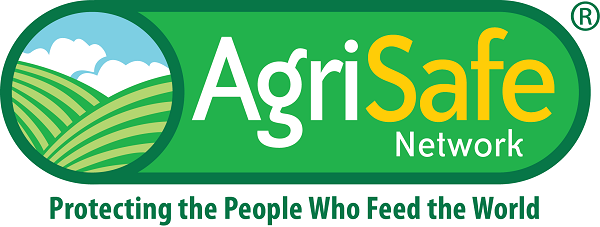AgriSafe Learning
NFSHW25: Wheels of Misfortune: Off-Road Vehicles on Public Roadways
-
Register
- Non-member - Free!
- Member - Free!
Summary: Off-road vehicles, including all-terrain vehicles (ATVs) and utility task vehicles (UTVs) are extremely popular and a common source of injury and death in rural areas, especially farms and ranches. While the use of ATVs/UTVs on public roadways increases the likelihood of a crash with another vehicle, the majority of roadway deaths and an even higher proportion of injuries on public roads are single ATV/UTV crashes not involving another motor vehicle.
ATVs/UTVs are designed for off-road use only, and manufacturers have strongly stated that they should not be operated on public roadways. In fact, the majority of deaths associated with these vehicles occur on public roads. Despite this, an increasing number of states, counties, and municipalities across the country are passing laws allowing ATVs/UTVs to operate on public roadways for transportation and recreational purposes. During this presentation, we will discuss the safety issues surrounding ATVs/UTVs on public roads and, in particular, the design elements of ATVs/UTVs that place their operators at greater risk on public roads. We will discuss how rural families can help protect themselves, their families, and employees from ATV/UTV-related crashes and injury.
Objectives: At the end of this webinar, participants will be able to:
- List at least three design features of ATVs and UTVs that contribute to crashes and subsequent injury, and be able to discuss how these features make ATVs/UTVs vulnerable to problems on both paved and unpaved roads.
- Identify at least three other factors that contribute to ATV/UTV-related crashes and injuries, and how they might decrease the risk to themselves, their families, and employees.
- Understand and appreciate ATV/UTV safety messages they might share with others, and how they could be effective advocates for informed safety legislation regarding ATVs/UTVs.
Intended audience: Farmers, ranchers, parents, agriculture production workers, healthcare providers, emergency medical services, public health officials, government and legislative leaders, administrators
Key:
Badge available
Badge available The University of Cincinnati, Department of Environmental and Public Health Sciences, Education and Research Center offers contact hours for this activity. This course can meet continuing education requirements for a variety of professionals, contact accrediting agency to verify eligibility.
The University of Cincinnati, Department of Environmental and Public Health Sciences, Education and Research Center offers 1.0 contact hour for each webinar during National Farm Safety and Health Week. Upon completing the evaluation, learners will receive a certificate of completion. This course can meet continuing education requirements for a variety of professionals including: BGC criteria for IH/CIH professionals, BCSP criteria for safety professionals, CPH criteria for public health professionals.

Charles Jennissen, MD
Clinical Professor and Pediatric Emergency Medicine Physician
University of Iowa Carver College of Medicine
Charles Jennissen, MD, is a pediatric emergency medicine physician and a Clinical Professor in the Departments of Pediatrics and Emergency Medicine at the University of Iowa Carver College of Medicine. Dr. Jennissen grew up on a dairy farm in central Minnesota. This plays a large part in his interest in safety and injury prevention, particularly regarding children and teens, and those who work and live on farms. Most of his research activities have addressed injury-related issues, especially those involving off-road vehicles. Dr. Jennissen is very active in the Iowa ATV Safety Taskforce and is a member of a national coalition led by the Consumer Federation of America that has been working to inform the public and governing officials of the dangers of off-road vehicles on public roads. He has been an advisory board member of I-CASH (Iowa Center for Agricultural Safety and Health) for 22 years. He is proud to have received the SAFE KIDS Iowa “People Who Make a Difference” Award in 2006.
Quick Search
Technical Difficulties
Submit a help ticket if you need technical assistance.
Having Computer Issues? Please check your internet browser and security settings to allow permissions for this website. Browsers: Microsoft Edge version 40 or higher; Chrome version 60 or higher, Firefox version 50 or higher; or Safari version 10.1 or higher. We recommend using Google Chrome or Firefox as your browser.
